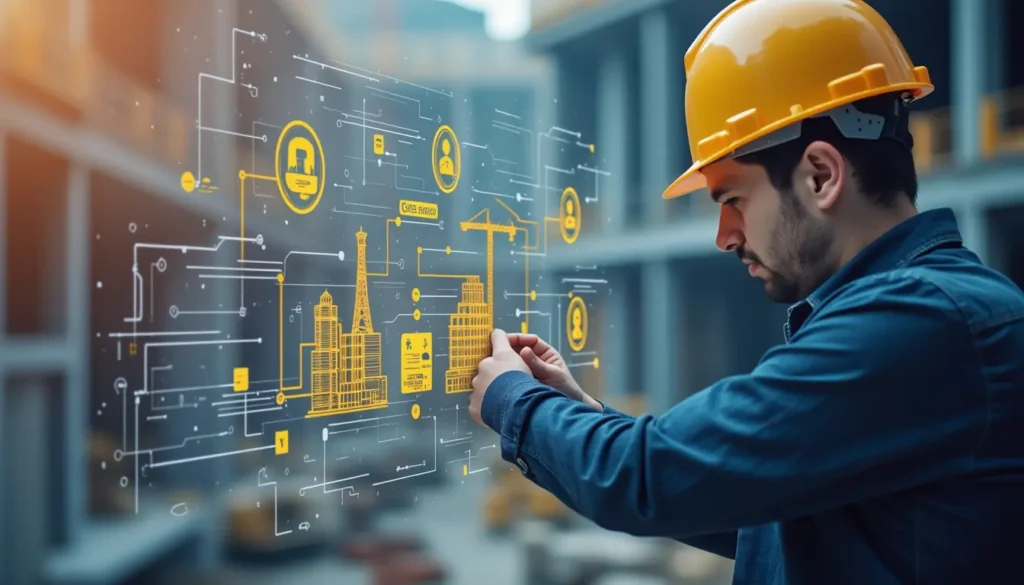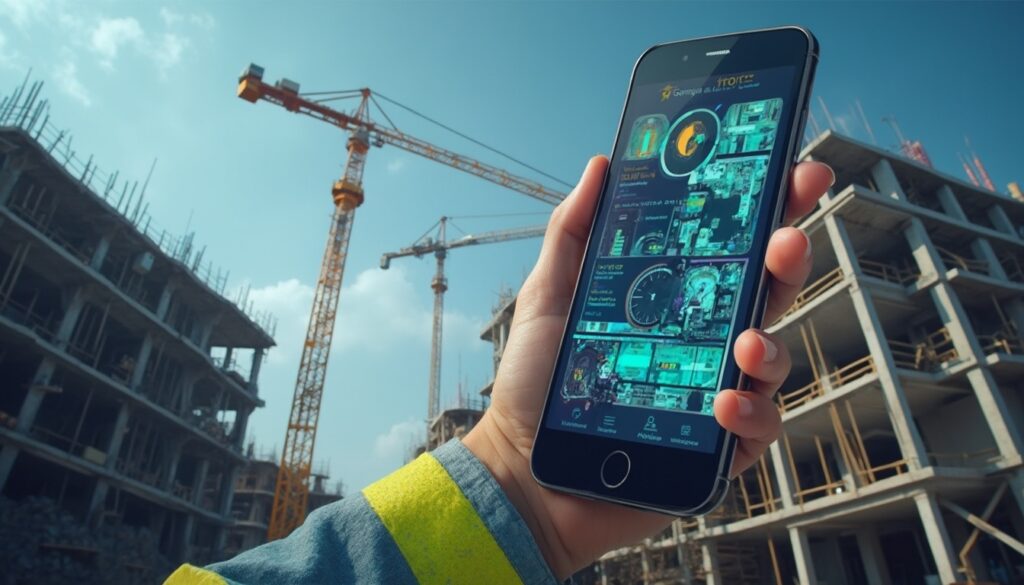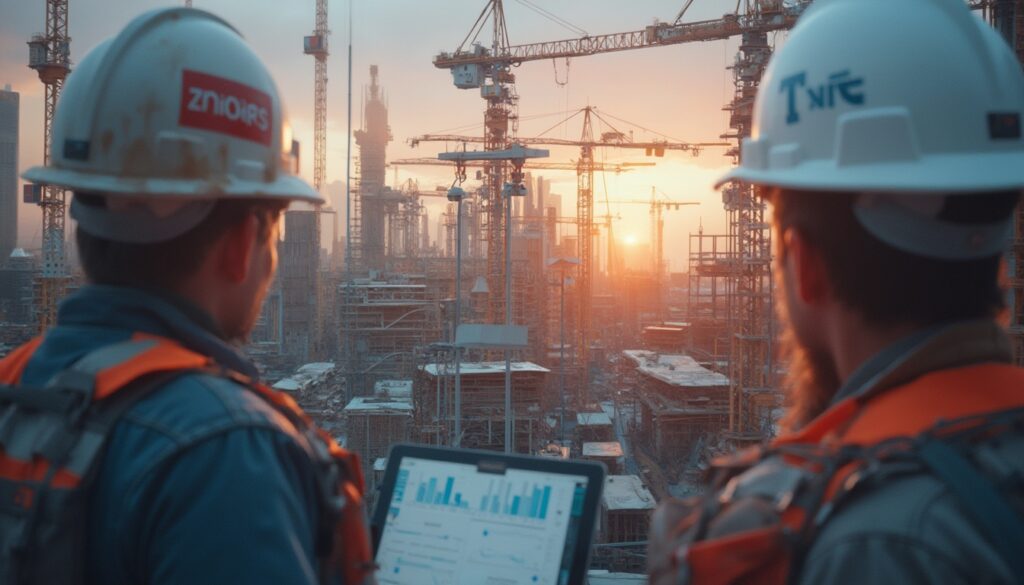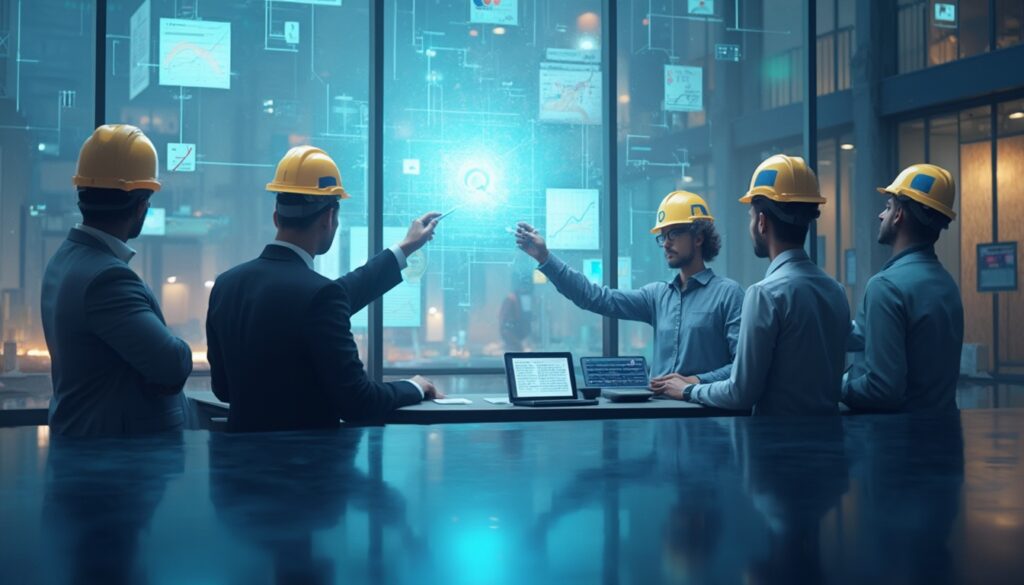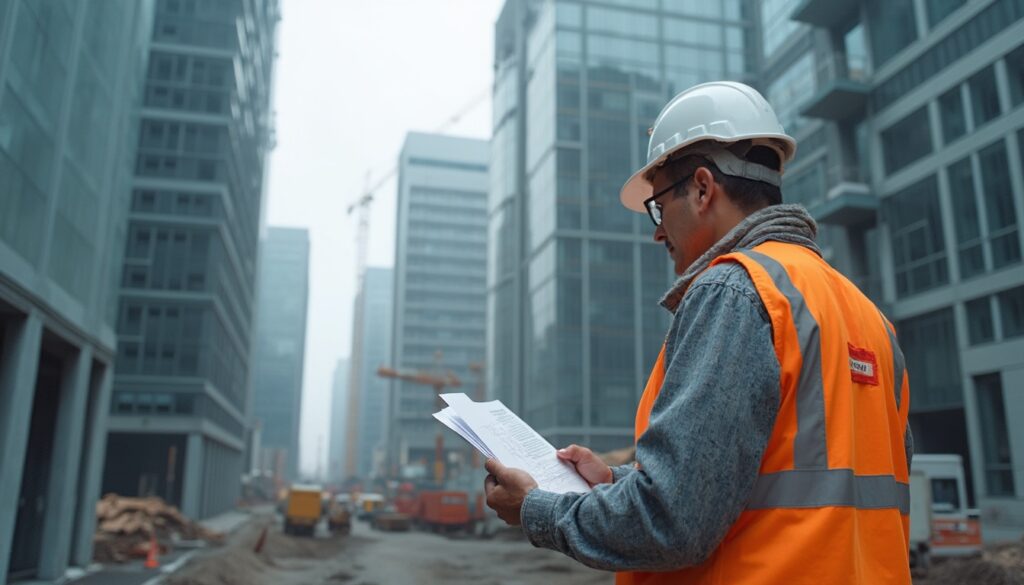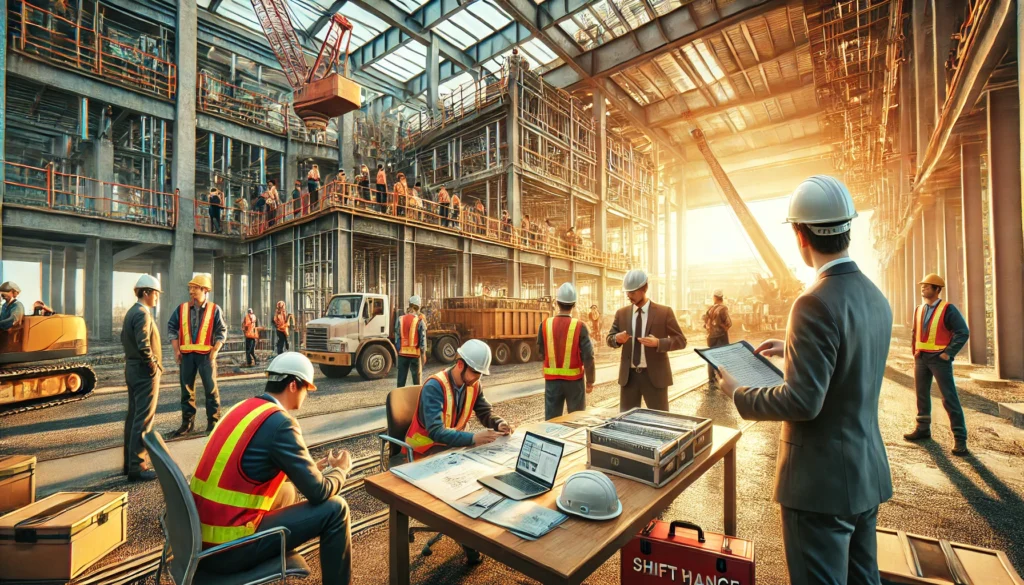Construction and Civil Engineering: Two Disciplines, One Challenge
The construction industry is traditionally divided into two main areas. The construction (Hochbau) encompasses all buildings that are primarily erected above ground level, such as residential and office buildings. Materials like wood, steel, and concrete are often used here. In contrast, civil engineering (Tiefbau) focuses on structures at or below ground level, including roads, tunnels, and drainage systems.
Despite the different technical requirements – a crane for construction here, an excavator for civil engineering there – both disciplines share a fundamental challenge. The coordination between up to 20 different trades and the continuous documentation of the construction progress are crucial for project success. Misinformation or delays in communication can increase construction costs by up to 20%.
This administrative complexity requires a solution that works for both areas and enhances efficiency. The future of the construction industry lies in simplifying these processes. This lays the foundation for successful project execution in both sectors.
Digital documentation to meet VOB requirements
Inadequate construction documentation can have serious legal and financial consequences. Especially for public contracts, the allocation and contracting regulations for construction services (VOB) serve as the central standard for documentation obligations. Inadequate evidence of defects or construction progress often leads to disputes that jeopardize compensation claims.
The digital capture of construction data offers crucial advantages here. It allows project managers to save up to 5 hours a week that would otherwise be spent on manual paperwork. The following points are improved by digital construction documentation:
- Legal certainty: Timestamps and GPS data in photos create an irrefutable evidence base.
- Transparency: All project participants have access to the current status from anywhere at any time.
- Efficiency: Automated report generation reduces manual effort by over 60%.
- Error reduction: Clear instructions and photo documentation minimize misunderstandings and costly rework.
Many companies underestimate that clean documentation is not just an obligation but a tool for risk minimization. Switching to digital systems, as seen with revision documents in civil engineering , is therefore a strategic step. This ensures compliance with regulations and optimizes project management.
Communication chaos as a hidden cost driver
On almost every construction site today, there are 5 to 10 different WhatsApp groups for project communication. What is intended as a straightforward solution results in significant issues in practice. Information gets lost, approvals are not traceable, and the separation of private and business use is completely missing.
This chaos is a direct cost driver. A study shows that up to 30% of costs in construction projects arise from rework and inefficiencies, often caused by poor communication. The consequences are severe:
- Missing or outdated plans at the construction site lead to construction errors.
- Employees spend up to 60 minutes a day searching for relevant information.
- Language barriers in international teams lead to misunderstandings with costly consequences.
- Documentation is not GDPR-compliant and cannot be used as evidence in court disputes.
Using private messaging services creates a false sense of efficiency, which, upon closer inspection, poses massive legal and financial risks. For large construction companies , a structured channel is essential. A central system for managing communication is therefore not a luxury but a necessity.
Valoon: Digital efficiency with zero training effort
The biggest hurdle in implementing new software on the construction site is employee acceptance. Complex applications with dozens of functions often fail because staff have no time for elaborate training. Valoon avoids this issue by operating on the familiar interface of WhatsApp, which over 90% of employees use daily.
Workers on the construction site communicate as usual via WhatsApp, while Valoon processes all data securely and systematically in the background. Photos, videos, and text messages are automatically timestamped and assigned to the correct project. The system generates daily construction reports, photo documentation, or lists of defects at the push of a button.
The benefits of this simplicity are measurable. Creating a daily construction report now takes only 5 minutes instead of the usual 30 minutes. The crucial advantage is that data collection happens passively and without additional effort for the staff on-site. This ensures comprehensive documentation, which is often neglected otherwise. For a foreman in construction , this means significant relief. Thus, the bridge between the construction site and office is built without interruption.
Conclusion: Ensuring competitive advantages in construction and civil engineering
The challenges in construction and civil engineering are diverse, yet the underlying problems with documentation and communication are identical. Unstructured processes cost money daily, increase legal risks, and demotivate employees. A digital solution must therefore meet three criteria: simple, efficient, and legally secure.
Valoon increases efficiency by up to 25% by automating manual documentation processes. It creates legal certainty through comprehensive, VOB-compliant documentation of all processes. Most importantly, it overcomes the acceptance hurdle on the construction site by using a familiar interface.
Don’t wait for small misunderstandings to escalate into costly legal disputes. Optimize your processes now and secure a decisive advantage in the competition. Book your free demo and discover in 15 minutes how Valoon can revolutionize your construction documentation.
More Links
Das Federal Statistical Office (Destatis) highlights the potential of digitization in construction activity statistics.
BIM Germany is the central platform for Building Information Modeling in Germany and provides comprehensive information on the topic.
Der Main Association of the German Construction Industry provides information on digitization in the construction industry on its topic page.
PwC offers a study on the digitization of the German construction industry from 2019.
Der Association of German Engineers (VDI) informs about the VDI 2770 series of guidelines for digital building documentation.
Das Fraunhofer IESE offers a publication on digitization in the construction sector.
Das Federal Institute for Research on Building, Urban Affairs and Spatial Development (BBSR) provides information on digital planning and construction.
Roland Berger has published a report on the digitization of the construction industry.
FAQ
How does construction documentation work with Valoon?
Your employees on the construction site use WhatsApp as usual to send photos, videos, and messages. Valoon captures this data in the background, automatically assigns it to the correct construction project, and generates legally secure daily construction reports, photo documentation, and more at the push of a button.
Is using Valoon complicated for the employees on the construction site?
No, not at all. The key advantage of Valoon is that there is no training effort for the employees on the construction site. They continue to use the familiar WhatsApp application on their smartphones without having to install or learn a new app.
Is the documentation created with Valoon legally secure and GDPR-compliant?
Yes. All data is stored on secure servers in Germany and processed in compliance with GDPR. With automatic timestamps and project stamps, the documentation is comprehensive, traceable, and usable as evidence in disputes, unlike the direct use of private WhatsApp groups.
For which company size is Valoon suitable?
Valoon is suitable for construction and trades companies of all sizes, from small craft businesses to large general contractors. The solution is scalable and adapts to the needs of your business, whether in construction or civil engineering.
What does it cost to use Valoon?
A core advantage of our pricing model is that using Valoon is completely free for employees on the construction site. Costs only apply to users in the office who access the web backend to analyze data and generate reports. This significantly lowers the barrier to entry.
Can Valoon help with language barriers on the construction site?
Yes, Valoon features an integrated live translation function. An employee can send instructions in their native language as a text or voice message, and the recipient receives it automatically translated into their target language. This significantly reduces misunderstandings among international teams.

